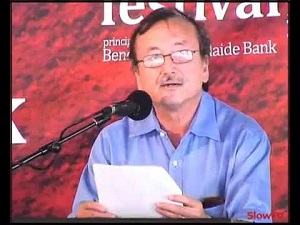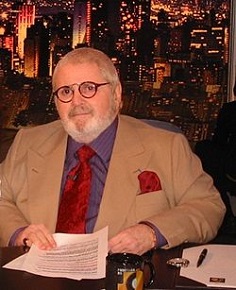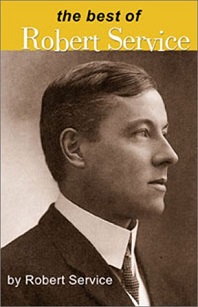De Australische schrijver en essayist Brian Castro werd geboren op 16 januari 1950 in Hongkong. Zie ook alle tags voor Brian Castro op dit blog.
Uit: After China
« But on this night, at number 1,199, the famous philosopher was stuck. No aphorism came to him. Not even a crude one on rain and earth, semen and secretion.
What was worse, he had committed 1,198 aphorisms to memory. Unable to think of the next, he was also unable to recall the others.
He tried the Reverse Flying Duck position. No go. He assumed the Two Dancing Female Phoenix Birds posture. Nothing. The Dark Cicada Cleaving to a Tree. Emptiness. The Donkeys in the Third Moon of Spring. Not a word came to him. He looked at the young woman. He hadn?t really observed his partners before. It was a revelation. She was extremely beautiful. Her pale flesh and dark eyes delighted him. He tried the Fluttering Butterflies. She smiled indifferently. It was really more of a blankness. No philosophy at all. To think that he once had to breathe in the manner of the Tao, gnash his teeth, apply pressure to secret parts to hold back from the abyss of excess. He disengaged himself. Went outside into the next room.
On his table, the future magnum opus. The introduction was already written. For the first time he experienced a fear of not being able to go on. A terrifying vision of somebody else completing his work appeared before him: a ghost-writer, a supplementer stealing the sacred kernels of his words, the hard-won visions of his longevity. Some bastard making the most of hindsight.
He took a short walk in a nearby forest.
When he returned she was still there, sleeping composedly on her silks. He tried again. The Winding Dragon. The Pawing Horse. Nothing. Not a pithy thing. The Hounds of the Ninth Day of Autumn. Disaster. Becoming quite ill and feverish, he suddenly sat up and held her face in his hands.
‘Who are you?’ he demanded. ‘Why have you robbed me of everything I cherish?’
Her face was flushed.
She looked at him steadily and then said very softly: ‘I am the book you intend to write, the intention of which is jade resplendent. But writing is not jade.’

Brian Castro (Hongkong, 16 januari 1950)
De Duitse schrijver, vertaler en politicus Uwe Grüning werd geboren op 16 januari 1942 in Pabianice bij Lodz, Polen. Zie ook alle tags voor Uwe Grüning op dit blog.
Die Arche
Als ich das Schiff betrat, blinkte
noch der Ararat über den Wassern,
und die Oliven an seiner Flanke
hatten die Friedenszweige mit Früchten behängt.
Der Regen ließ sie verfaulen.
Hoffnungsbeladen
fand ich das Schiff,
aber Liebe und Glaube
waren nicht in der Arche.
Vierzig Tage
währte die Flut.
Nun aber, wo sie
hinter den Hügeln verstummt
und die vergessenen Länder
aufsteigen erneut aus den Wassern
verschlammt, aber fruchtbar,
bringt statt des Ölzweigs
die Krähe das Lebenskraut.
So ruht
ein wenig aus, ehe ihr eßt,
tapfere Zimmerer!
Legt schon die Äxte zurecht,
legt die Waffen zu Häupten!
Ihr werdet
um dieses Bitterkraut Leben – ich weiß es –
euch töten, sobald ihr erwacht.

Uwe Grüning (Pabianice, 16 januari 1942)
De Braziliaanse schrijver, theaterproducent, talk show host, acteur, schilder en musicus José Soares werd geboren op 16 januari 1938 in Rio de Janeiro. Zie ook alle tags voor José Soares op dit blog.
Uit: Twelve Fingers: Biography of an Anarchist
« Fate and Ivan’s monotesticular libido decree that Isabel quickly becomes pregnant. A dedicated artist, she works until the very hour of delivery. When the circus appears in Banja Luka, after a nine-month tour, the public is astonished to see that lovely young woman contorting her enormous belly in the center ring. In the final days, Ivan Korozec begins to fear that the child will be born right there, twisted and amid lions and clowns. His fears are unfounded: Dimitri is born in the wagon of a Bulgarian trapeze artist with the bearded lady as midwife. He is a perfect creature except that he has an extra index finger on each hand.
This anomaly is neither shocking nor greatly noted, for the twelve fingers are totally symmetrical. The newborn is bathed at once in the waters of the Vrbas and seven days later, over Isabel’s protests, as dictated by Poluskopzi ritual, his right testicle is removed and eaten by his father. If he were an adult, the excised gonad would be swallowed by the Grand Master of the order, Boris Kafelnikov, an obscure tailor from Vladivostok. To the amazement and pride of the semicastrati who participate in the ceremony, the baby does not cry.
From early on, Dimitri, or Dimo, as his parents call him, speaks not only Serbo-Croatian, his father’s language, but also Portuguese, which his mother had taught him by reading and rereading José do PatricÃ?nio’s book. Isabel tells him romanticized stories of the slaves’ struggle for freedom. The legendary abolitionist takes on quasi-mystic proportions in the boy’s fanciful imagination. He imagines him as a warrior saint lopping off the heads of slave traders. Dimo possesses an extraordinary aptitude for languages, and in the multilingual world of the circus he quickly learns German, French, English, Italian, Russian, Albanian, and Spanish. He speaks all of these tongues without accent.”

José Soares (Rio de Janeiro, 16 januari 1938)
De Servische schrijver Aleksandar Tišma werd op 16 januari 1924 geboren in Vojvodina. Zie ook alle tags voor Aleksandar Tišma op dit blog.
Uit: Schneck (Vertaald door Barbara Antkowiak)
“Bald darauf ging; er -wieder auf Reisen diesmal nach Sarajevo , und als er im Hotel den Koffer auspackte, stellte er fest, daß er die Kopfschmerztabletten nicht mitgenommen hatte. Er ärgerte sich, denn er meinte ein wenig abergläubisch , das Übel werde ihn ereilen, bevor er eine Apotheke fand. Doch es verschonte ihn auch diesmal. Daraufhin begann er sich zu beobachten: In der Frühe war sein Kopf nicht mehr dumpf wie sonst, sondern von einer ungewohnten Klarheit; tagsüber schüttelte er ihn hin und wieder in der Erwartung eines Schwindels mit nachfolgender Bewußtlosigkeit, jedoch war alles sicher und fest. Nachdem er während eines Besuchs bei Ljiljana Kalajié so mit dem Kopf geschüttelt hatte, konnte er nicht umhin, ihr zu sagen:
»Wissen Sie, was e> bei mir Neues gibt?« (Er siezte sie, obwohl sie seit zwei Jahren ein Liebespaar waren.) Und als sie fragend die Brauen hob, mit gewisser Scham, weil er sie mit einer Bagatelle belästigte: »Meine Kopfschmerzen sind weg, schon seit zwei Monaten.« Statt sich jedoch zu freuen oder gleichgültig auf diese Mitteilung zu reagieren, runzelte sie besorgt ihre dichten Brauen und sagte: »Bloß das nicht, um Gottes willen!« Im selben Moment fiel ihm ein, warum sie das sagte, und er senkte den Blick.
Er erinnerte sich nämlich daran, daß Ljiljanas verstorbener Mann nicht mehr an Kopfschmerzen gelitten hatte, nachdem bei ihm eine Nervenkrankheit aufgetaucht war,die zu seinem späteren Tod führte, und daß ihm Ljiljana einmal von dieser ungewöhnlichen Tatsache erzählt hatte.
Zu dieser Mitteilung war es überraschend und aus gegebenem Anlaß gekommen. Schneck nämlich hatte laut darüber nachgedacht, wie Krankheiten durch den menschlichen Körper wandern, vom Hals in die Nieren und in die Gelenke, worauf Ljiljana, plötzlich ernst, ergänzte: »Sie haben recht. Auch mein Mann wurde seine Kopfschmerzen fast am selben Tag los, als sich diese schreckliche Krankheit bei ihm zeigte.« Denn sie mochte die Krankheit ihres Mannes nicht beim Namen nennen; sie wich diesem Thema ebenso geflissentlich aus wie Schneck danach trachtete, es zu diskutieren.“

Aleksandar Tišma (16 januari 1924 – 16 februari 2003)
De Canadese dichter en schrijver Robert William Service werd geboren op 16 januari 1874 in Preston, Engeland. Zie ook alle tags voor Robert W. Service op dit blog.
A Grain Of Sand
If starry space no limit knows
And sun succeeds to sun,
There is no reason to suppose
Our earth the only one.
‘Mid countless constellations cast
A million worlds may be,
With each a God to bless or blast
And steer to destiny.
Just think! A million gods or so
To guide each vital stream,
With over all to boss the show
A Deity supreme.
Such magnitudes oppress my mind;
From cosmic space it swings;
So ultimately glad to find
Relief in little things.
For look! Within my hollow hand,
While round the earth careens,
I hold a single grain of sand
And wonder what it means.
Ah! If I had the eyes to see,
And brain to understand,
I think Life’s mystery might be
Solved in this grain of sand.
Playboy
I greet the challenge of the dawn
With weary, bleary eyes;
Into the sky so ashen wan
I wait the sun to rise;
Then in the morning’s holy hush,
With heart of shame I hear
A robin from a lilac bush
Pipe pure and clear.
All night in dive and dicing den,
With wantons and with wine
I’ve squandered on wild, witless men
The fortune that was mine;
The gold my father fought to save
In folly I have spent;
And now to fill a pauper’s grave
My steps are bent.
See! how the sky is amber bright!
The thrushes thrill their glee.
The dew-drops sparkle with delight,
And yonder smiles the sea.
Oh let me plunge to drown the pain
Of love and faith forgot:
Then purged I may return again,
–Or I may not.

Robert W. Service (16 januari 1874 – 11 september 1958)
Cover
Zie voor nog meer schrijvers van de 16e januari ook mijn vorige blog van vandaag.
